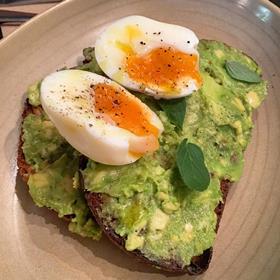
Giving vegetables ‘seductive’ names can increase sales by up to 25 per cent, according to a new study by US researchers.
Veggie dishes at a university cafeteria were given names such as ‘sizzlin’ beans’, ‘dynamite beets’ and ‘twisted citrus-glazed carrots’ by researchers at Stanford University, who found the indulgent names boosted sales compared to healthy labels such as ‘wholesome’, which were seen as a turn-off.
The experiment took place over the autumn academic term with a vegetable dish labelled in one of four ways: basic - where the description was simply ‘carrots’; healthy restrictive – ‘carrots with sugar-free citrus dressing’; health positive – ‘smart-choice vitamin C citrus carrots’; and indulgent – ‘twisted citrus-glazed carrots’.
The choice of vegetable – beetroot, butternut squash, carrot, corn, courgette, green beans, sweet potato – was rotated regularly to ensure variety.
Seductive names resulted in 25 per cent more people selecting the vegetable compared with basic labelling, 41 per cent more people than the healthy restrictive labelling and 35 per cent more people than the healthy positive labelling.
The results did not surprise some in the fresh produce industry, many of whom have already been employing sensory words when marketing fresh produce.
G’s marketing director Anthony Gardiner said branding on the company’s flagship Fresh & Naked salad brand has used words such as ‘punchy’ and ‘powerful’ to appeal to the consumer.
He said G’s consumer research suggests this resonates with some shoppers, but not all.
“We also see the migration of this sort of messaging into foodservice where there is an emerging set out outlets who are all about ‘smashed avocado on toast, much more exciting than simply slicing,” he said.
Lead author Brad Turnwald said: 'Labels really can influence our sensory experience, affecting how tasty and filling we think food will be. So we wanted to reframe how people view vegetables, using indulgent labels.'






No comments yet